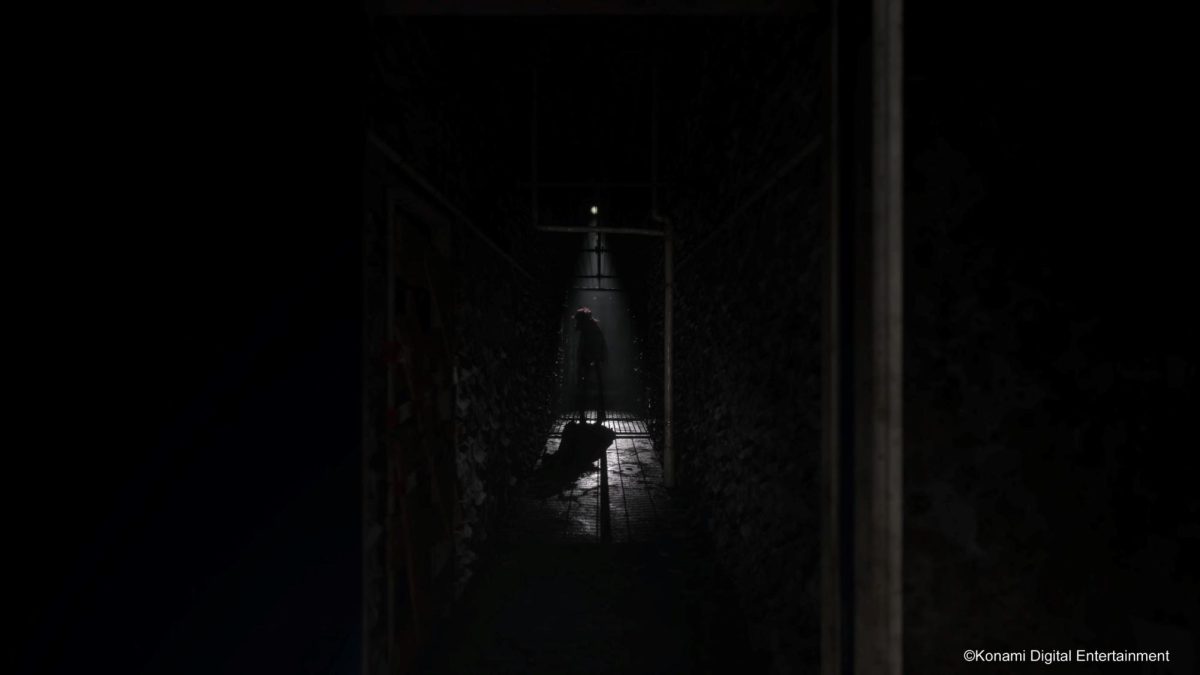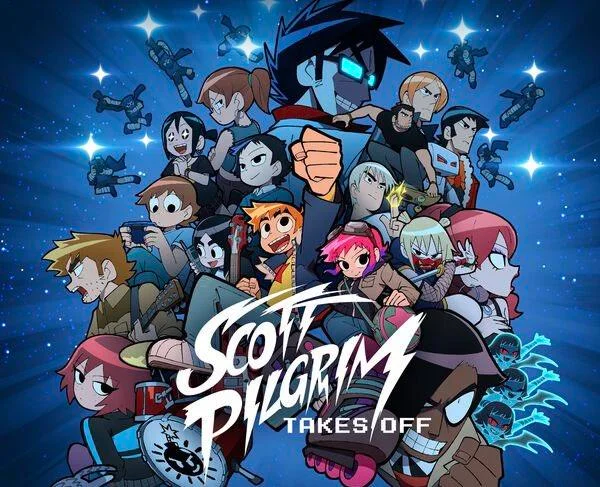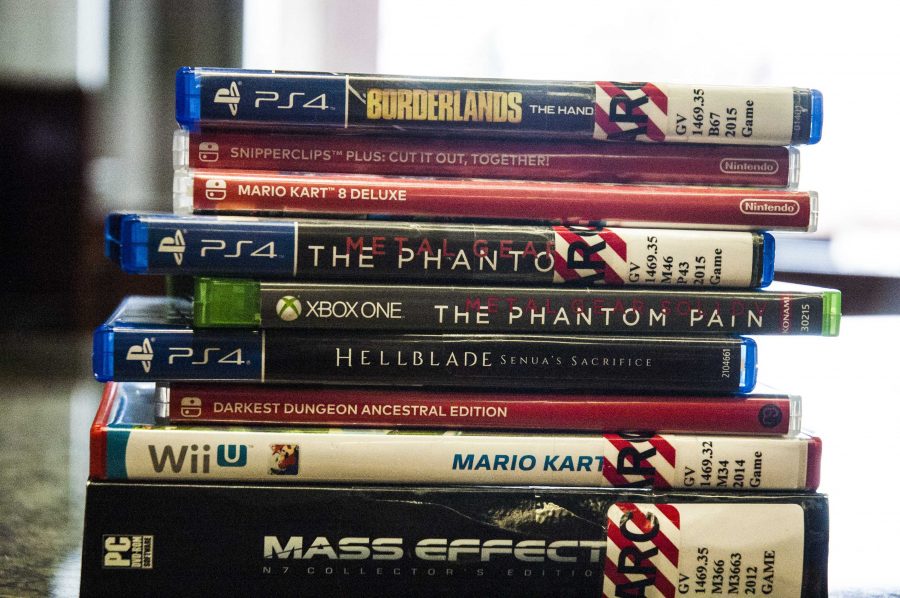We’ve come to expect a degree of controversy surrounding video games. As a newer, popular form of art and entertainment, they continue to provoke heavy analysis and even attacks over social media. The interactive element inherent in gaming brings up questions about what content is acceptable in games, which populations should have access to certain games and when — if ever — these games should be censored or restricted.
Obscene and questionable content saturates many of the video games in today’s market. The most well-known offender, the Grand Theft Auto series, has been criticized in the past for its rampant sexism, along with heavy use of violence, drugs and sex. Metal Gear Solid V: The Phantom Pain and Metal Gear Solid V: Ground Zeroes have pushed the limits of objectification and violence toward women, even going so far as to imply an attempted rape just beyond the camera’s view. Star Wars: The Old Republic contains several ethically dubious activities, such as helping a sex slave to seduce an opponent or sleeping with a woman while forcing the player’s Twi’lek slave to watch. Even in Tomb Raider (2013), there’s the implication of attempted rape.
This trend of controversial content goes way back into the history of games. Playboy: The Mansion (2005) simulates the lifestyle of Hugh Hefner building his Playboy empire and hosting parties rife with alcohol, women and sex. Peach Princess’s Critical Point, published in 1998, sends the male player character to an all-female moon base where they must have sex with several women in order to complete a murder investigation. Sex garners interest and makes money, yet it also creates a massive ethical gray area that both developers and consumers are still exploring.
The Game:
The game Rape Day, which was made independently, has been causing controversy lately. Most recently, this video game was removed from the Steam store — the largest online provider of PC games — and has sparked conversations in Germany, Austria, and the UK over tightening regulations on games. This game plays out as an interactive graphic novel technically set in a zombie outbreak — only the entire plot revolves around playing the role of a rapist in a house with two potential victims. The player character, Boss, is a 42-year-old generic dude who’s big, bald and looks like your stereotypical creeper. As may be expected from the title of the game, this game provides opportunities to murder, coerce and rape other non-player characters as the game progresses.
Ignoring, for the moment, all the horrible elements of this game, Rape Day is a terrible game at its core. It seems built entirely around creating controversy with little to no substance otherwise. All the game assets we’ve seen appear very low quality. The writing feels incredibly forced and cringe-worthy — creepy solely for the sake of being creepy. The characters, in addition to being poorly modeled and textured, are incredibly generic and overly exaggerated. The man towers over everyone else and bulges with muscles while the women are all breast and butt in their skimpy outfits that leave little to the imagination. Everything has been built up around using sexual assault to stir up outrage.
The developer himself admits the game mainly exists to challenge “SJWs” (social justice warriors — a term often used to describe left-leaning activists who take issue with such provocative content). He’s also announced a new project in the works which, in his words, “May cause a significant stir. As always, nothing about the project will be illegal in anyway [sic], but it may cause unintended offense to the overly sensitive amongst us.” After online outrage rendered the game unmarketable, he provided it as a free download on his website, but since then even the website has been taken down.
How Should We Respond to Provocative Content?
Jose Zagal, professor in the University of Utah’s Entertainment Arts & Engineering (EAE) program who teaches the course “Ethics in Video Games,” has a few words to say on how controversial content may appear in games:
“There is no fundamental reason to say that a game cannot or should never include or portray sexual assault. That said, creators need to treat such inclusion or portrayal with a great deal of care, tact, mindfulness and positive intentionality. Including sexual assault to titillate or shock is irresponsible and unethical. However, a game designed to help people understand the trauma of sexual assault and its effects could be incredibly useful and powerful.”
Rape Day shows how sexual assault can be used unethically, according to Zagal’s standards. Proponents for the game might come up with arguments that this game allows people to safely exercise any socially unacceptable desires they may have. Perhaps they may say that a game like Rape Day can be a tool for victims of rape to mentally cope with or reimagine their own traumas. These are merely excuses for a game which only seeks to disturb and upset, however. We do not see even the slightest attempt at sensitivity or positivity within this game. There was no care and no tact. The designer has explained — both implicitly in his creation and explicitly on his website — that the game is meant only to provoke outrage.
Issues of Censorship:
With the governments in Germany, the United Kingdom and the Austria discussing harsher legislation for games, how we deal with these controversial games must be addressed. In 2011 the U.S. Supreme Court ruled that games are a form of speech, and thus qualify for protection under the First Amendment of the U.S. Constitution. Censoring games is not only impractical, explains Zagal, but also illegal in this country. “However, I do believe in classification and content ratings. In other words, I think that tools and systems for helping consumers understand what they’re getting into with a particular game are important and valuable.” Another EAE professor had a slightly different take, however.
This professor — we’ll call them Smith — wished to remain anonymous because articles on controversial video game issues can frequently trigger violent online harassment for all those involved. Smith had this to say:
“I sincerely believe in free speech — for everyone. Even for people who want to make disgusting, cynical and designed-to-grab-headlines video games. However, free speech isn’t hate speech. Hate speech is a very different thing. I didn’t play that game, but if it actually included hate speech then there need to be consequences.”
Both Smith and Zagal agree that the best approach towards these games is the response of players and private businesses. If consumers do not support the content of a game, they should express this with their wallets. Businesses — even those with a more hands-off approach to the products they retail — also have a role in communicating what they find acceptable. The steps that Steam, PayPal and Humble Bundle took to ban this game were entirely justified, the professors agree. Zagal said, “I think that private companies like Steam are fully within their rights to decide which games they want to sell and support and which ones they do not. As a consumer I can disagree, or agree, with their decisions … They have the position (and market power) to stand behind the kinds of games people would like to see and to shape the conversation about what games could be.” However, Steam dropped the ball on that account, Zagal goes on to explain. The company dragged their feet when the controversy first arose, and when they did remove the game from the store they cited the potential “unknown costs” that this “risky” game might pose. They framed their stance as purely a business approach, and thus they ignored the entire ethical dilemma.
In the end, it all comes down to our individual reactions to the content we find in games as in any other form of media. If this means games need clearer packaging and labeling, perhaps that’s the best way to go about it. “That’s the great thing about our system though,” Smith said. “No one is making me watch or buy those things. I get to be the curator of my own experiences — which is why I read reviews.” If this experience with Rape Day proved anything, it’s that this system can work. The game was seen for the deliberately disgusting content that it was, and it has been all but wiped from the public domain as a result.



















no comment • Apr 16, 2019 at 12:54 pm
thank you!
Helena • Apr 16, 2019 at 2:19 am
Video game violence is as pervasive as lame journalists and useless academics make it out to be – because apparently doing real work is to earn a living is too much to ask for.
And these people are the usually the laughable sensationalists that we always end up mocking a little later.
http://bh-s2.azureedge.net/bh-uploads/2016/03/TrojanDD.jpg
https://youtu.be/7QrsJTIckIw?t=594